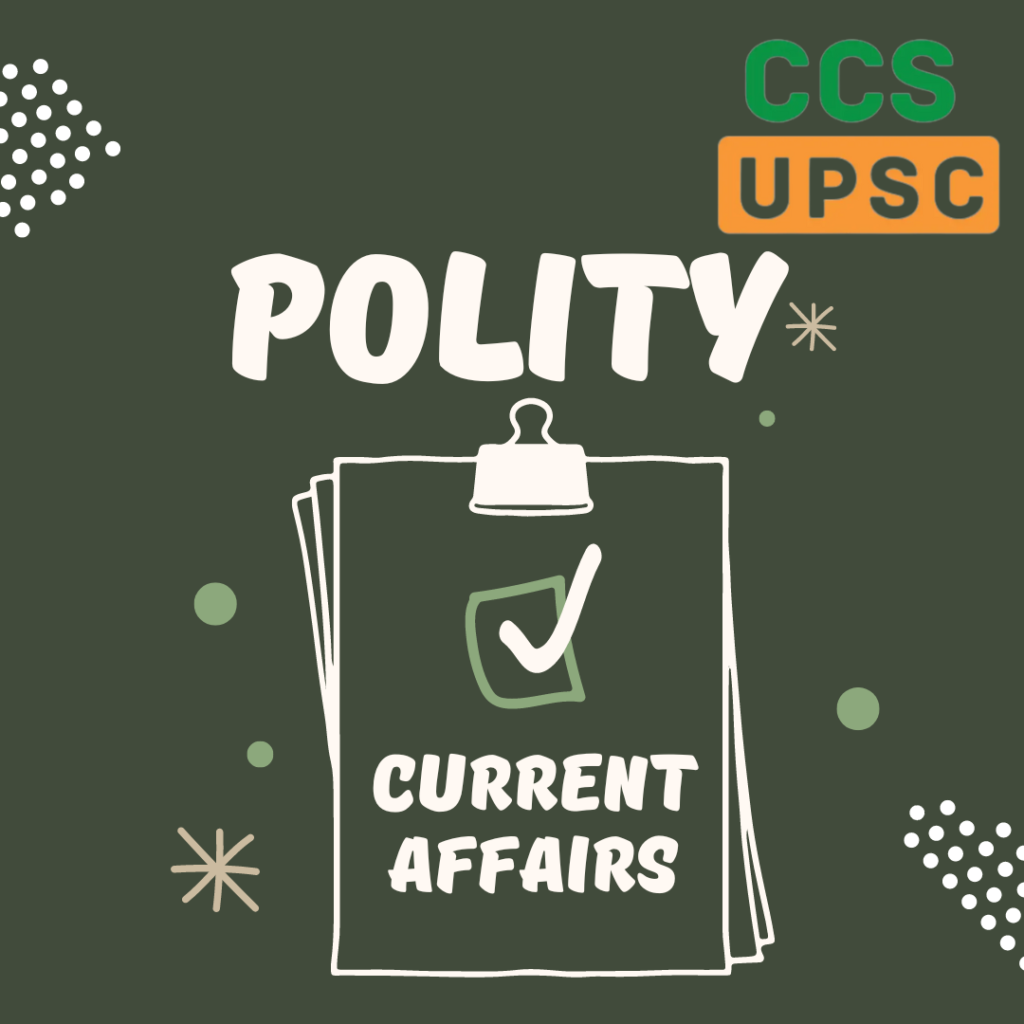Context:
Supreme Court judge Justice BR Gavai has been nominated as the Chairman of the Supreme Court Legal Services Committee (SCLSC).
Supreme Court Legal Services Committee
∙ The Supreme Court Legal Services Committee was constituted under Section 3A of the Legal Services Authorities Act, 1987, to provide free and competent legal services to the weaker sections of society, in cases falling under the top court’s jurisdiction.
∙ Section 3A of the Act states that the Central Authority (the National Legal Services Authority or NALSA) shall constitute the committee.
∙ It consists of a sitting SC judge, who is the chairman, along with other members possessing the experience and qualifications prescribed by the Centre.
ο Both the chairman and other members will be nominated by the CJI.
Constitutional Backing
∙ Article 39A states, “The State shall secure that the operation of the legal system promotes justice, on a basis of equal opportunity, and shall, in particular, provide free legal aid, by suitable legislation or schemes or in any other way, to ensure that opportunities for securing justice are not denied to any citizen by reason of economic or other disabilities.”
∙ Articles 14 (right to equality) and 22(1) (rights to be informed of grounds for arrest) also make it obligatory for the State to ensure equality before the law and a legal system that promotes justice based on equal opportunity.
∙ Establishment: In 1987, the Legal Services Authorities Act was enacted to give a statutory base to legal aid programmes.
Legal Services Authorities Act
∙ Eligible Groups: It aims to provide free and competent legal services to eligible groups, including women, children, SC/ST and EWS categories, industrial workers, disabled persons, and others.
∙ Monitoring Body: Under the Act, NALSA was constituted in 1995 to monitor and evaluate the implementation of legal aid programmes and to lay down policies for making legal services available.
∙ Implementation: A nation wide network has been envisaged under the Act for providing legal aid and assistance.
∙ It also disburses funds and grants to State Legal Services Authorities and NGOs for implementing legal aid schemes and programmes.
∙ State Legal Services: In every state, State Legal Services Authorities (SLSA) were established to implement NALSA’s policies and directions, give free legal services to people, and conduct Lok Adalats.
∙ An SLSA is headed by the Chief Justice of the respective High Court and includes the senior HC judge as its Executive Chairman.
∙ While the HC Chief Justice is the patron-in-chief of the SLSA, the CJI is the patron-in-chief of NALSA.
∙ District Legal Services: Similarly, District Legal Services Authorities (DLSAs) and Taluk Legal Services Committees were established in districts and most taluks.
∙ Each DLSA is chaired by the District Judge of the respective district.
∙ The Taluka or Sub-Divisional Legal Services Committees are headed by a senior civil judge.







